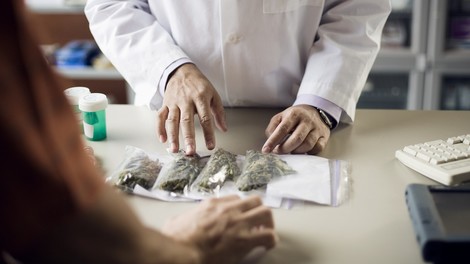Your podcast discovery platform
Curious minds select the most fascinating podcasts from around the world. Discover hand-piqd audio recommendations on your favorite topics.

piqer for: Health and Sanity Boom and bust Climate and Environment
Melissa Hutsell is an award-winning freelance journalist with a deep rooted passion for both community and international journalism. She was born and raised in Northern California, and has lived, studied, worked, and traveled in more 20 different countries. Melissa holds a Master's degree in Global Journalism from City University London, as well as degrees in Journalism and Globalization from Humboldt State University. Though she covers various topics as both a writer and editor, she specializes in business and cannabis journalism.
Most Oncologists Recommend, But Cannot Advise On, Using Medical Cannabis
Roughly two-thirds of oncologists believe that medical marijuana is useful, but fewer than 30 percent feel they have enough knowledge about it to advise their patients on its medical use, according to a recently released study.
The study, published in the Journal of Clinical Oncology, reports that 80 percent of cancer doctors speak with their patients about cannabis. In most cases, patients start such conversations.
Doctors, like oncologist Jerry Mitchell, say they can’t initiate discussions about medical cannabis because there are not legal ways to get the substance.
“Oncologists' ignorance about medical marijuana leaves many cancer patients to go it alone in figuring out which cannabis products — and what dosages — might work best to help them manage the debilitating symptoms that often come with chemotherapy,” the article reports.
Figuring out what works best for patients is a game of trial and error. It can take months to dial in a dosage and form of consumption (i.e. edibles, topicals, tinctures, inhaling) that works best for the individual.
Mitchell said that he suspects oncologists recommend cannabis use for patients despite being ill-equipped on the topic because of antidotal evidence, and what is known about alternatives. This includes opioids and nonsteroidals, “which can work but are sometimes not effective for substantial cancer pain,” said Mitchell. “Well, that's all we have in our toolbox,” he added, “[…] perhaps I'm okay with anecdotal evidence.”
